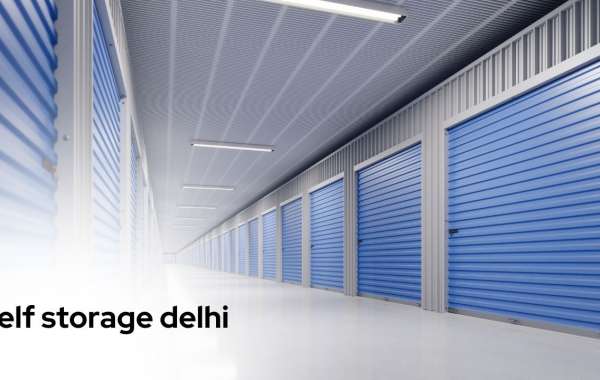In today's fast-paced world, finding the right storage solution for your belongings can be a daunting task. Whether you’re a homeowner looking to declutter, a business in need of extra space, or someone in the middle of a move, choosing between a self-storage space and a traditional warehouse can significantly impact your experience. In this blog post, we’ll explore the key differences between self-storage facilities and traditional warehouses, helping you make an informed decision that suits your specific needs.
Understanding Self-Storage Spaces
Self-storage facilities offer individual units that you can rent on a short-term or long-term basis. These units are usually accessible 24/7, allowing you to retrieve or store your belongings at your convenience. Here are some key features of self-storage spaces:
1. Accessibility
Self-storage facilities are designed for easy access. You can visit your unit whenever you need to, often without prior notice. This is ideal for personal items or business inventory that you may need to access frequently.
2. Size Variety
Self-storage units come in various sizes, from small lockers to large garages. This flexibility allows you to choose a unit that fits your needs, whether you're storing seasonal decorations or an entire apartment's worth of furniture.
3. Security Features
Most self-storage facilities prioritize security, offering features like gated access, surveillance cameras, and individual unit alarms. These security measures help ensure that your belongings are safe and secure.
4. Affordability
Self-storage units are often more budget-friendly than renting an entire warehouse. With a variety of pricing options, you can find a solution that fits your budget without compromising on quality.
Exploring Traditional Warehouses
On the other hand, traditional warehouses are typically larger spaces designed for storing bulk inventory and commercial goods. They are often utilized by businesses for logistics and distribution. Let’s look at the main characteristics of traditional warehouses:
1. Space and Capacity
Traditional warehouses provide significantly more space than self-storage units. If you have large volumes of inventory or oversized equipment, a warehouse might be the better choice.
2. Operational Support
Warehouses often offer operational services like loading docks, forklifts, and staff support. If your business requires assistance with logistics or distribution, a warehouse could be a more suitable option.
3. Long-Term Storage Solutions
If you have inventory that you plan to store for an extended period, a traditional warehouse may offer more competitive pricing and long-term contracts compared to self-storage facilities.
4. Limited Accessibility
While some warehouses may provide limited access, they are generally not as accessible as self-storage facilities. If you need to access your items frequently, this could be a drawback.
Key Considerations for Choosing the Right Option
1. Nature of Your Items
- Self-Storage Space: Best for personal belongings, seasonal items, furniture, or business inventory that requires frequent access.
- Traditional Warehouse: Ideal for bulk goods, industrial equipment, or items that you don’t need to access regularly.
2. Frequency of Access
- Self-Storage Space: Offers 24/7 access, making it convenient for those who need to retrieve items often.
- Traditional Warehouse: Typically has limited access hours, which might not suit everyone’s needs.
3. Size Requirements
- Self-Storage Space: Units are available in various sizes to accommodate different needs.
- Traditional Warehouse: Provides larger, more flexible space for significant storage needs but may be overkill for smaller items.
4. Budget Constraints
- Self-Storage Space: Generally more affordable, with flexible payment plans for short-term or long-term rentals.
- Traditional Warehouse: May involve higher costs, especially if you require additional services or support.
Conclusion: Which is Right for You?
Ultimately, the choice between a self-storage space and a traditional warehouse depends on your specific requirements. If you need a flexible, accessible solution for personal belongings or smaller business inventory, a self-storage facility near you is likely the best option. Conversely, if you run a business that requires significant storage capacity and operational support, a traditional warehouse might be more suitable.
Before making a decision, take the time to assess your needs, evaluate your budget, and visit local facilities. This way, you’ll ensure that you choose the storage solution that works best for you.




